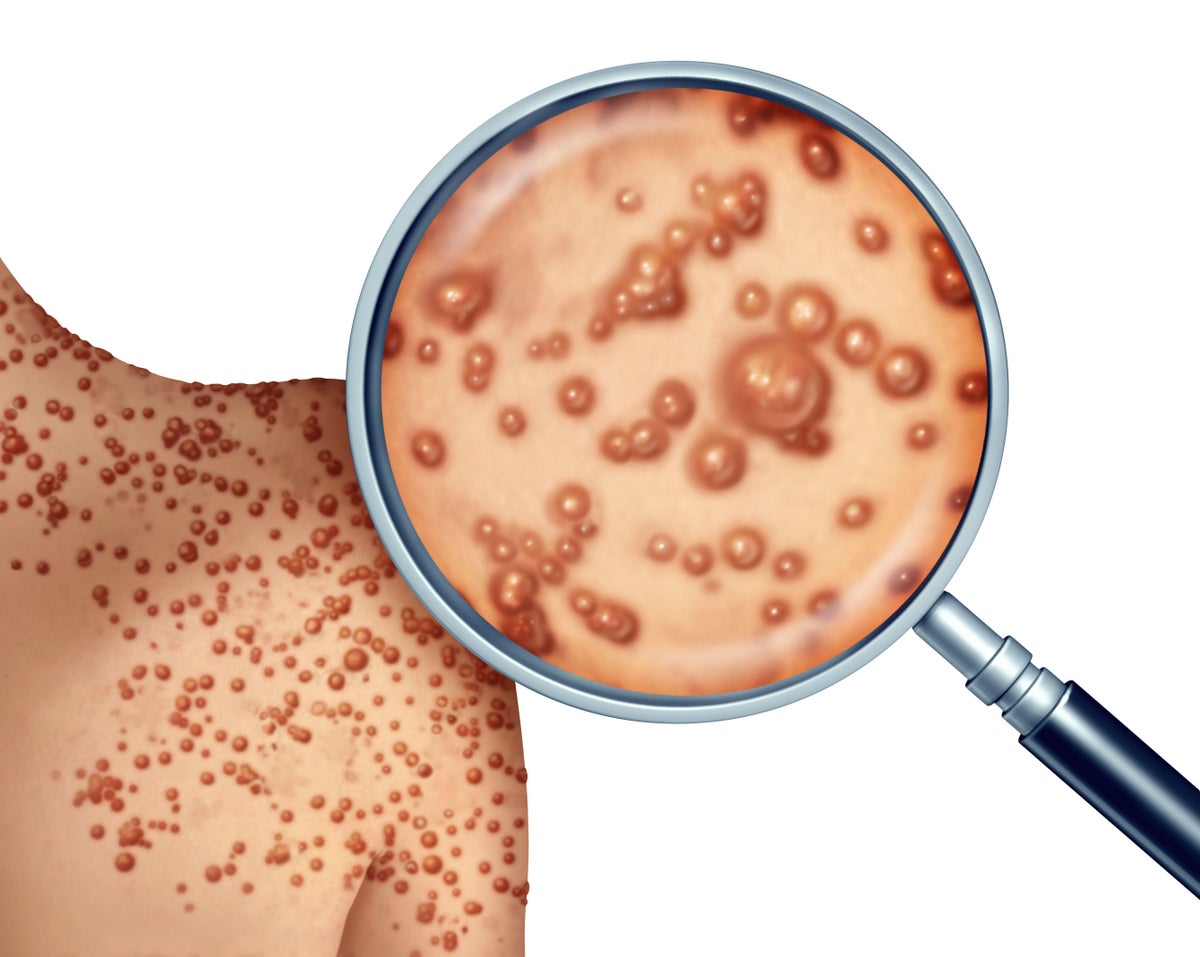
Monkeypox could have been spreading for “months or possibly a couple of years” before it was detected in the latest outbreak, global health leaders have said.
The World Health Organisation (WHO) said that some 550 cases have been reported in the latest spike in cases across 30 countries where the virus is not commonly found.
The global health body said that one theory behind the latest outbreak could be that there is waning immunity to smallpox – which is from the same virus “family” as monkeypox – among adults under the age of 50.
Vaccines for smallpox are being offered to close contacts of diagnosed cases in the current outbreak.
But they have not been routinely administered from around the time of the eradication of the disease in 1980, which could mean that younger people who did not get the vaccine do not carry the protection afforded by the smallpox jab, WHO experts suggested.
So far 190 cases have been identified in the UK.
The UK Health Security Agency (UKHSA) said that 86% of England’s cases are in London residents and only two were women.
Most (87%) monkeypox cases have occurred in people aged 20 to 49 years old.
And 111 cases are known to be gay, bisexual, or other men who have sex with men.
Some 18% of cases reported travel to a number of different countries in Europe within 21 days of their symptoms starting.
The UKHSA added: “Investigations to date have identified links to gay bars, saunas and the use of dating apps in the UK and abroad.
“Investigations continue but currently no single factor or exposure that links the cases has been identified.”
Addressing a press conference on monkeypox, Covid-19 and other global health issues, Dr Tedros Adhanom Ghebreyesus, drector general of the WHO, said: “More than than 550 confirmed cases have now been reported to WHO, from 30 countries that are not endemic for monkeypox virus.
“Investigations are ongoing, but the sudden appearance of monkeypox in many countries at the same time suggests there may have been undetected transmission for some time.
“WHO is urging affected countries to widen their surveillance, to look for cases in the broader community.
“Anyone can be infected with monkeypox if they have close physical contact with someone else who is infected.
“The situation is evolving, and we expect that more cases will continue to be found.
“It’s important to remember that generally, monkeypox symptoms resolve on their own, but it can be severe in some cases.”
Asked whether the monkeypox situation could become a pandemic, WHO’s monkeypox expert Dr Rosamund Lewis said: “Right now this is an outbreak and outbreaks can be stopped.
“So our efforts right now is to stop forward transmission of this outbreak and also to support the countries in Africa that live with this disease day in and day out.”
She added: “The fact that this virus has appeared in Europe in a large number of cases, an increasing number of cases, is clearly cause for some concern, and it does suggest that there may have been undetected transmission for a while.
“What we don’t know is how long that may have been, we don’t know if it’s weeks, months or possibly a couple of years.
“It really is something that needs to be ascertained through deeper investigation of the initial cases that were reported and outbreak investigation of the clusters from which these cases arose.
“So we don’t really know whether it’s too late to contain, what WHO and all member states are certainly trying to do is to prevent onward spread.”
No deaths have been reported in the latest outbreak, but experts warned that in countries where the virus is endemic, deaths are reported every year.
Dr Lewis added: “One of the theories of course is that vaccination against smallpox was stopped in 1980 when smallpox was eradicated worldwide.
“And so the collective immunity in the human population is not what it was at the time of smallpox eradication.
“So collectively, anyone under the age of 40, or 50, depending which country you were born in, or where you might have received your vaccine against smallpox, would not now have that protection from that particular vaccine.
“Monkeypox is related to smallpox in the sense that the viruses are from the same family.”
Dr Meera Chand, director of clinical and emerging infections at UKHSA, said: “We are working to break chains of transmission, including by contact tracing and vaccination.
“We are grateful to everyone who has come forward for testing and it is extremely important that everyone continues to be aware of the symptoms and to seek advice if they have concerns.
“We are reminding people to look out for new spots, ulcers or blisters on any part of their body.
“If anyone suspects they might have monkeypox, particularly if they have recently had a new sexual partner, they should limit their contact with others and contact NHS 111 or their local sexual health service as soon as possible, though please phone ahead before attending in person.”
UKHSA said that it is working with venue owners and event organisers in London for “outreach activity”.







